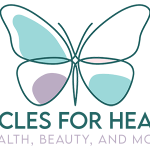Millions of Americans know about the benefits of supplements. They are available in amino acids, vitamins, healthy oils, fatty acids, and amino acids.
They’re excellent for combatting vitamin deficiencies, lowering the risk of some diseases, and ultimately improving your health.
However, there are many facts about supplements that you may be unaware of. But you can use the following details to make the best and healthiest choices about supplemental health:
1. Supplements are only regulated, not tested
There are almost a hundred thousand supplements today, but they’re unregulated. The Food and Drug Administration merely exists to ensure that they’re produced in safe conditions, which means they can contain harmful or toxic ingredients.
The FDA doesn’t have the power to test the supplements before they go on the market clinically.
That’s why it’s best to consult with your healthcare provider before purchasing and adding supplements to your diet. They may be better at identifying products that are condemned for your health.
2. Supplements aren’t replacements for working out and honoring a good diet
To live a healthy life, you need to avoid smoking and drug misuse, get enough sleep, stay active, and eat a balanced diet. Although vitamin and mineral supplements provide the boost of nutrients your body needs, they can never be substitutes for eating well.
Folic acid forms the neural tube while the baby develops during pregnancy and prevents congenital disabilities to its brain and spine. You need it when you’re pregnant or trying to have a baby.
Calcium, magnesium, and vitamin D3 enhance bone and dental health. Osteoporosis may improve when you increase your dietary consumption of this material.
And if you’re a woman in her twenties, you need additional focus on bone health because bone density reduces during this period.
Supplements can provide additional sources of these nutrients, but you shouldn’t rely on them as substitutes for natural, healthy food.
3. Tell your healthcare provider when you’re taking supplements
Before taking any supplements, you should ask your doctor. Although they’re not prescriptive medications, these pills and capsules are highly interactive.
For instance, St. John’s wort may inhibit the performance of birth control pills and chemotherapy. Supplements like fish oil, garlic, and vitamin K may decrease blood clotting. And some others may increase the risk of liver damage, such as vitamin A. Excessive consumption may also increase the chances of congenital disabilities.
Additionally, vitamin E increases the risk of excessive bleeding or hemorrhage when you take it in unregulated amounts.
4. Some supplements are already validated
Supplements like omega-3 fatty acids, vitamins B6 and B12, and niacin have been validated by clinical tests. They’re efficient but shouldn’t be used without talking to your healthcare provider.
5. Vitamin supplements have side effects
There are many options when you’re looking to buy supplements. As such, they also put you at the risk of side effects that may upset your stomach or cause diarrhea.
There’s an official list of common supplements and their side effects; check the Office of Dietary Supplements website.



